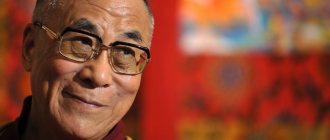Be aware of the possible consequences.
“When anger arises, think about the consequences.”
Solomon said: “He who knows how to control his anger is greater than the mighty.” Try to keep your mood in check, keeping in mind the consequences. Anger will not lead to anything good; being angry, you stop thinking sensibly, which means you can do stupid things. Know how to restrain your emotions, especially negative ones, if you value the reputation and results that you have accumulated over the years. Be wiser. But there is also “righteous anger”, remember that too. It must be demonstrated in appropriate situations.
The Search for Great Rulers
After creating his own school in 522 BC. Confucius turns to various rulers of the Chinese kingdoms who could bring to life his worldview regarding the principles of government. In this regard, Confucius has to travel a lot and become a participant, as well as a victim, of intrigue.
In 517 BC, at the age of 35, the “Master” went to the kingdom of Qi, where he eventually stayed for a couple of years, but in 515 BC. was forced to leave the palace of the ruler of Qi, Jing-gong. The reason for the departure of the ruler of the kingdom of Qi from the court was pressure from the local aristocratic class.
Confucius returned to Lu and, having received a diplomatic post in 500 BC, worked successfully in his post until he was provoked by representatives of the kingdom of Qi while performing one of the rituals of a sacrificial ceremony.
After this, the philosopher left his position at Lee, and in subsequent years he traveled widely. It took Confucius about 14 years to visit different kingdoms. According to research, he walked through at least 9 large courts, communicating with rulers and acting as a mentor.
In addition, Confucius gathered many fans throughout China during this period.
Poverty, own family, education
Since Confucius’s father died of old age when his son was only three years old, and his family turned away from his mother, the future philosopher had to live with his mother in poverty throughout his childhood and youth. He spent many years doing dirty work to earn a living.
At the age of 15, the future sage begins to realize the importance of education and begins to study the 5 arts (reading and calligraphy, mathematics, rituals, archery, chariot riding).
At the age of 16, Confucius lost his mother. First, he buried her on the Wufuqu Five Fathers Road, so that later he could bury her next to his father, about the location of whose grave he knew nothing at the time of his mother’s death. Yan Zhizai decided not to tell her son about this. But later Confucius learned about his father’s burial place - near a mountain called Fangshan, after which he transferred his mother’s ashes to him.
At the age of 19, Confucius got married. The marriage produced a son, Lee, and 2 daughters. Confucius had a tense relationship with his son, which is why his students later called their “Teacher” strict and demanding of his own son.
Having mastered the five arts, the little-known future sage receives a position in the Ji clan - to become an accountant and responsible for livestock.
Some writers of that time created a myth that during this period Confucius met with Lao Tzu in the kingdom of Zhou, for which researchers have never found solid historical evidence.
At the age of 27, Confucius received a fairly high position in the kingdom of Lu - in the main idol, and at the age of 30 the philosopher finally had the opportunity to open his own school.
The meaning and significance of Confucianism in the East
Confucianism gave rise to centuries-long processes of formation of a powerful ideological background of Chinese society. Also, the philosopher’s teachings went far beyond the Celestial Empire.
The postulates of Confucianism fundamentally contradict Mohism, which preaches “universal love,” offering fair love to society, which makes Confucianism more socialized and less utopian than Mohism.
On the other hand, the concept of the followers of Confucius refutes the need to adhere to the law, which is what supporters of legalism call for. In contrast to the “letter of the law,” one might say, Confucianism opens up broad opportunities for observing the “spirit of the law.”
Becoming the basis for the management approach, the teachings of Confucius radically change the essence of management. Thanks to its influence, it has become the ethical and political normative basis of Chinese society and is asserting itself in its positions, despite all the historical, political and economic changes in the world in general and the Celestial Empire in particular.
Family and background
Confucius' mother Yan Zhizai was the youngest of three sisters in her family. She was born in 568 BC. and at the time of marriage she was not even 20 years old.
The sage's father was an aged military man named Shuliang He. When he decided to get married, according to ancient sources, he was 66 (according to some sources - 63) years old. The reason for the search for a new wife was that Shuliang He had no heirs, and the only available son (Bo Ni, also known as Meng Pi), born of a concubine, turned out to be sick from birth and was not suitable for the role of successor.
One version of the story of the birth of Confucius is the possibility of his birth as the illegitimate son of Shuliang He. The fact is that the marriage of a 60-year-old man with a young girl at that time was perceived as barbaric - it was not customary for such old men to start a new family. Followers of Confucianism deny the version of the “Teacher’s” illegitimate origin, and there is no historical evidence for this theory.
By origin, Shuliang He from the Kun clan was a hereditary Shi - from the class of distant relatives and collateral branches of aristocratic families in China. Researchers searching for the origins of the Kun family learned that it descended from one of the sons of Di Yi, the penultimate of the emperors of the Yin dynasty, who was the ruler of the Chinese state from 1101 to 1076. BC.
Several generations of Confucius's ancestors had fame, wealth and were distinguished by good traditions of education, socio-political and spiritual activities. During the time of Mu Jingfu (great-grandfather of Confucius in the 2nd generation), the Kong family began to be persecuted, after which he disappeared into the territory of Lu, where the family lost its former benefits, fame and influence. Since then, all successors served the rulers of Lu, thus entering the Shi class.
It was from Shi that a layer of the bureaucratic apparatus of the state, distinguished by certain values, grew up in that period. Education, reverence for history and ancient rulers were passed down in Shi families from generation to generation, which also affected the values of Confucius himself.
Birth and meaning of the names of the philosopher
Confucius was born during the internecine wars in China, after the collapse of the Zhou state, when the period of the so-called “middle” kingdoms began - in 552 or 551 BC. According to some studies, the real date of birth (552) was replaced by the disciples of Confucius in order to give it a more sacred meaning.
In the kingdom of Lu, which existed at that time, in which the philosopher was born, a chronicle was kept called “Chun Qiu” (chronicle of “Springs and Autumns”) - from 722 to 481. BC, and from 481 to 221. BC. - the chronicle of “Zhang-guo” (the chronicle of the “Warring States”), which gave the name to the corresponding period in the history of the Ancient Celestial Empire.
The birthplace of the future “Teacher” of all China was the city of Zou in the kingdom of Lu. Today this city has a different name - Qufu, and is located in one of the provinces of the People's Republic of China - Shandong.
The name Confucius comes from the Latin version of one of the philosopher's names: Kung Fu Tzu - Confucius. Sometimes there is a form of the name Kun Tzu, or simply Tzu. It is worth understanding that Zi is only a prefix to his name denoting the term “Teacher,” by which he is known to most admirers.
At birth, Confucius received two names Qiu and Zhong-ni, which respectively mean “hill” and “second of clay,” which is connected with the story of his birth - his mother named him with these names.
When the parents of the future sage learned that they would have a child, they went on a pilgrimage to a holy place to beg the deity of Clay Hill for the birth of a son-heir. After a successful birth near a holy place, the mother awarded the philosopher.
School of Confucius
Having opened his own school, the philosopher finally began to implement his basic ideas.
Firstly, he began teaching everyone at his school for a fairly modest fee - a bunch of dried meat. In this way, almost any Chinese could gain access to training.
As reported in historical sources, the total number of students at the school reached 3 thousand. At the same time, it is known about 70 students of Confucius who became his successors along the path of dissemination of ideas that ultimately formed the conceptual basis of Confucianism, which eventually became a religious teaching.
Some sources indicate the number of students as 72, but historians argue that this is only one of many attempts to add symbolism to the philosopher's life story.
Throughout the work of the school, Confucius developed his teachings for a long time, and also tried to find great rulers - “noble men” who could put into practice his approach to good governance.
In addition, historical documents contain information about famous socio-political figures and leaders of individual kingdoms and lands visiting the school.
Teachings of Confucius
The main image created by Confucius was that of a teacher who imparts knowledge rather than creates it. In the understanding of the philosopher and his followers, the teachings of Confucianism take their origins from the veneration of antiquity.
Antiquity, as understood by students of the school of the Chinese sage, is the standard of the correct course of action.
This is where some danger lies in the concept of Confucianism regarding the worship of antiquity, since the actions of the legendary rulers of the past are considered true by default, and everything that comes into confrontation with them is false and untrue. Although at the same time, Confucius admits that the main role models - the ancient rulers Yao and Shun - were also not ideal and “perfectly wise,” as recorded in the book “Lun Yu”.
"Lun Yu" is the main text of Confucianism, a book that collected all the main sayings of Confucius related to his teachings.
Confucianism is based on the definition of two types of people:
- Jun Tzu - a noble person, a virtuous husband, a personal standard;
- Xiao Ren is a small, simple person who is unable to understand the teaching.
A Junzi who has the virtues must have five main life qualities, which became the basis for the worldview of the followers of the great sage and teacher.
Results
The last, final lesson that can be gleaned from Coelho’s book “The Alchemist” can be formulated this way: you need to take risks. By allowing unexpected things to happen, you can see what a miracle life truly is.
This may seem like incomprehensible nonsense to some, but in fact, the lessons of Paulo Coelho are very powerful. Don't believe me? Find ways to apply them to your own life. And we will leave you with a quote taken from The Alchemist: “No matter what he does, every person plays a central role in the history of the world. But usually he doesn’t know about it.”
Found a violation? Report content
Adjust the plan, but not the goals.
“When it becomes obvious that a goal cannot be achieved, do not change your goal, change your practical steps.” If you're starting to realize that you're not making progress toward your goal this year, it's a good time to make changes to your plan. Don't accept failure as an option, set your sails and calmly move towards your goal. If you don't see much results by doing the same thing every day, try doing something different, but don't change your goal, just find a different path to it.
Good things are expensive.
“It's easy to hate and hard to love. This is how our world works. All good things are difficult to achieve, but bad things are very easy.” This explains a lot. It's quite easy to hate, to just be negative, to just make excuses. Love, forgiveness and wisdom require a big heart, a big mind and a lot of effort. None of us strives for something bad, at least for ourselves. Everyone wants a better fate for themselves, but how can you get there if you don't make an effort to be positive. Remember, your outside world is a reflection of your inner world.










